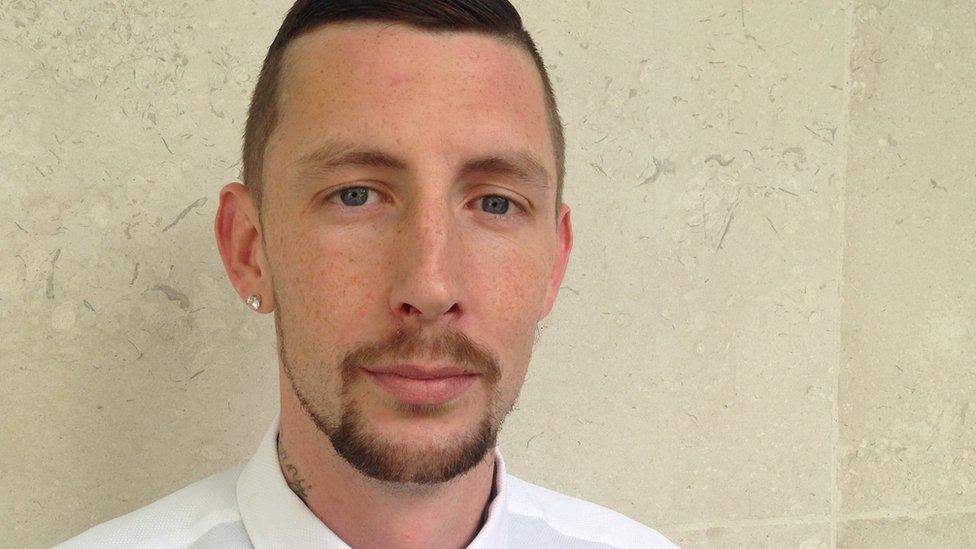Naloxone impact: Sharp rise in use of overdose-reversing drug
- Published
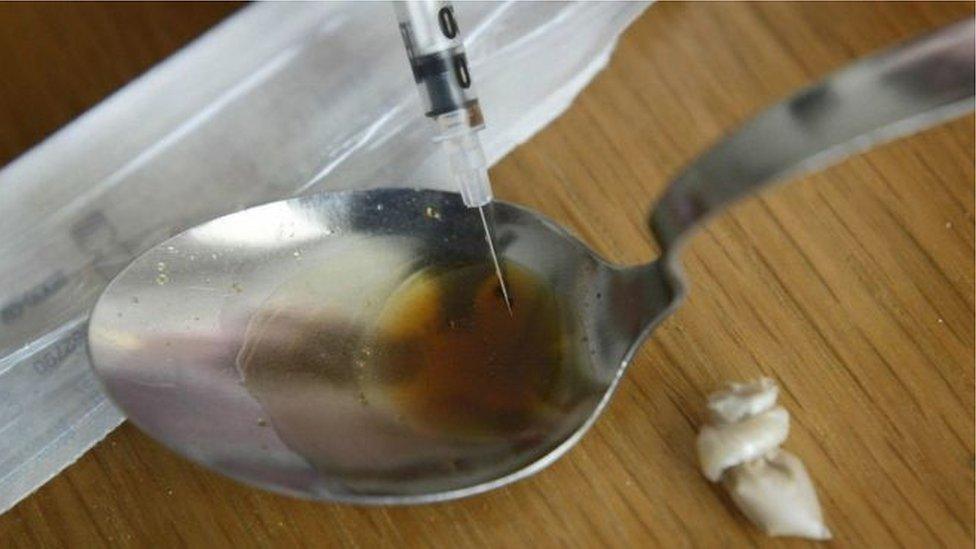
Drugs such as morphine and heroin are considered opioids
The number of times Northern Ireland's ambulance service administered a drug to reverse overdoses has risen by 40% since 2017, official figures show.
Naloxone, which temporarily reverses the effects of opioid overdoses, was administered 876 times in 2019.
This is 200 times more than two years ago, according to Northern Ireland Ambulance Service (NIAS) figures.
In 2017, the ambulance service administered naloxone 628 times. In 2018, the number rose to 873.
Drugs such as morphine and heroin are considered opioids.

Dr Nigel Ruddell, medical director of the NIAS, said the service had been working with the Public Health Agency and other statutory bodies to address underlying issues as well as improving the emergency response at times of crisis.
"The rise of around 50% in the number of times our crews have administered this life-saving treatment over the past few years reflects the growing social issues we see in relation to mental health and related usage of both drugs and alcohol," he said.
Naloxone was introduced in Northern Ireland in 2012, and is funded by the Public Health Agency and the Health and Social Care Board.
The number of times ambulance services responded to suspected overdoses in the last three years remained steady, figures released to BBC News NI show.

But the amount of calls the ambulance services consider to be the most serious have risen by about 40% too.
In 2017, 1,010 suspected overdose calls made to the ambulance service were in the "Category A" bracket.
By 2018, this had jumped to 1,394. Last year this figure had already been surpassed by the end of November, reaching 1,464.
The NIAS did not provide the figures for December 2019.

'I want to stay away from that life'
Tony (not his real name), 29, has a history.
As a younger man he drank, he used and sold drugs and he has been in and out of prison "too many times to count", he said.
After his most recent stint in prison, he became a full-time resident at Stella Maris, a "wet hostel" run by the Depaul charity in Belfast.
For now, Tony is not drinking or using drugs.
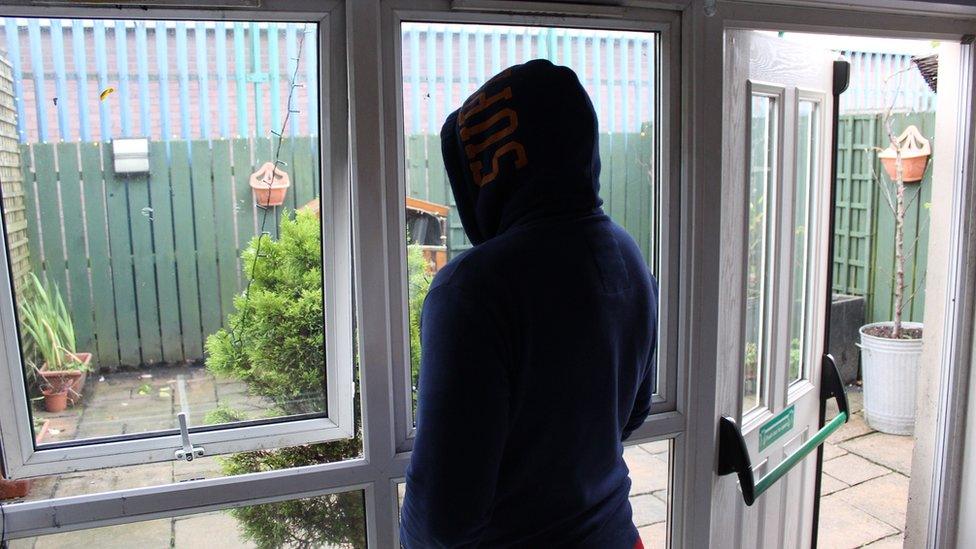
Tony said he is not drinking or using drugs anymore
But he says the reality of an overdose is never far away. Days ago, a friend, who was also in jail, passed away from substance abuse in another hostel.
"There's no support for people. They're going around in circles, going out and in," he said.
"The money you get when you get out of jail is just spending money and then you're back in."
Tony is now waiting for a house on Depaul's Housing First programme, which helps people who are homeless, including those with addiction issues, find a permanent home.
"I'm doing it for my wee girl," he said.

The rising number of serious overdose cases is putting a strain on homelessness services.
Deirdre Canavan, senior services manager for Depaul in Northern Ireland, said its Stella Maris service, which was set up to tackle homelessness, has had to cope with a stark rise in service users struggling with both alcohol and drug addictions.
"It's not only alcohol now, it's prescription medication, it could be street drugs, it could be drugs of all types really," she said.
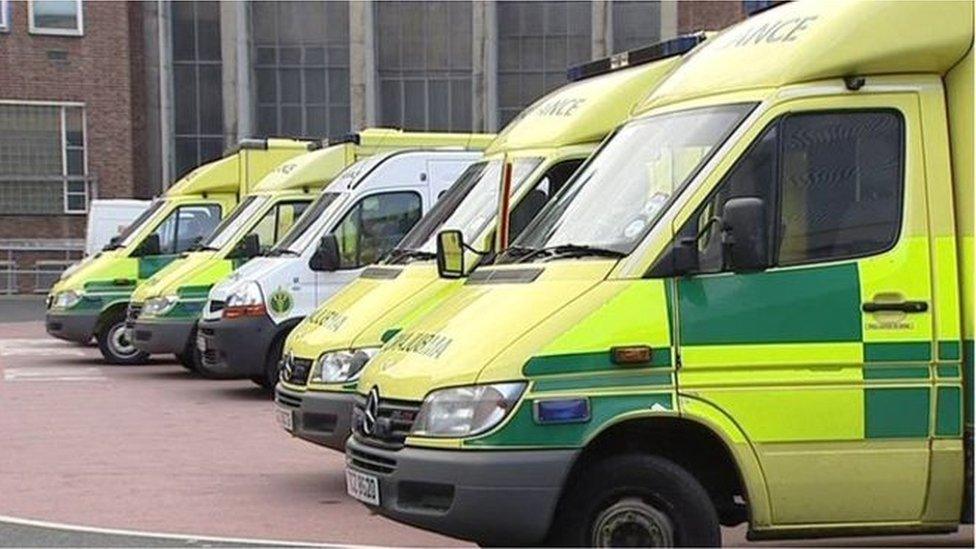
The ambulance service has administered naloxone 200 more times than two years ago
In 2019, the charity had to administer naloxone 32 times in its Belfast location, compared to just three times the previous year.
"The reality of it is that the staff are working with individuals who are entrenched street drinkers and now we're working with a completely different demographic of service users," she said.
"While alcohol is still a primary issue, polysubstance use makes it very difficult for staff."
- Published4 March 2019
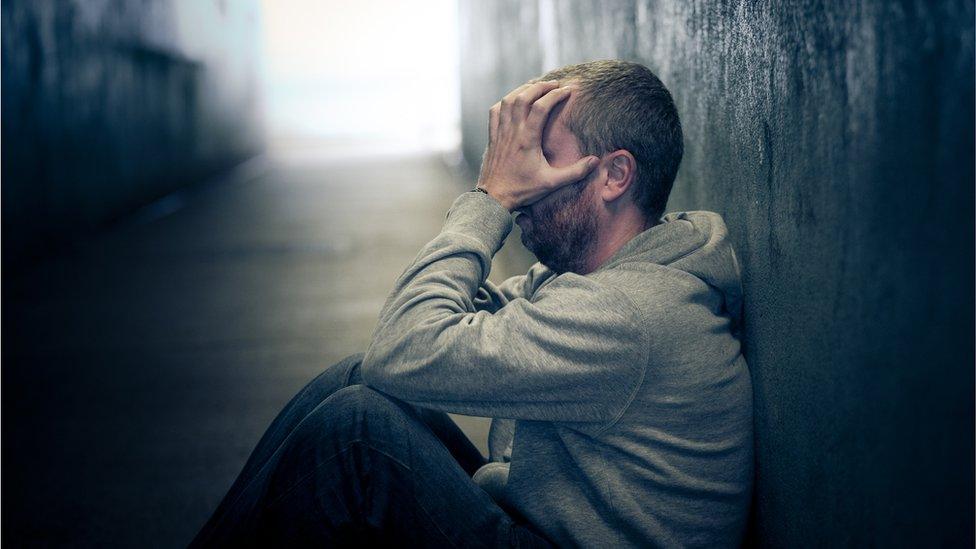
- Published30 September 2016
